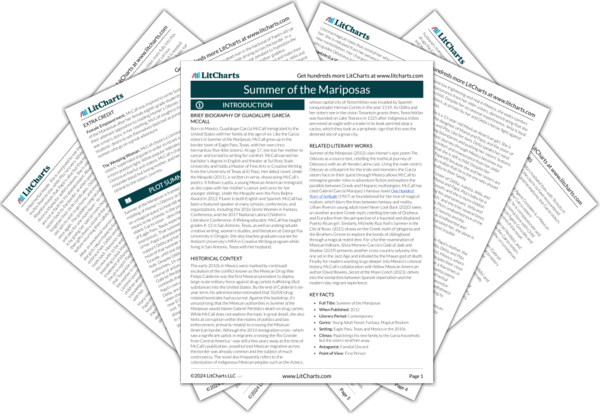Odilia’s dream of Chencho feels like a warning, suggesting a higher power or intuition is looking out for her. The one-eyed chupacabras parallels the Cyclops, who is initially hospitable toward Odysseus and his crew in Homer’s
The Odyssey. While Chencho claims that he is the Garza sisters’ friend, he is clearly unable to control his actions and intentionally deceives them. Through Chencho’s character, the novel explores how even trusted and well-meaning people can mislead and cause harm.
